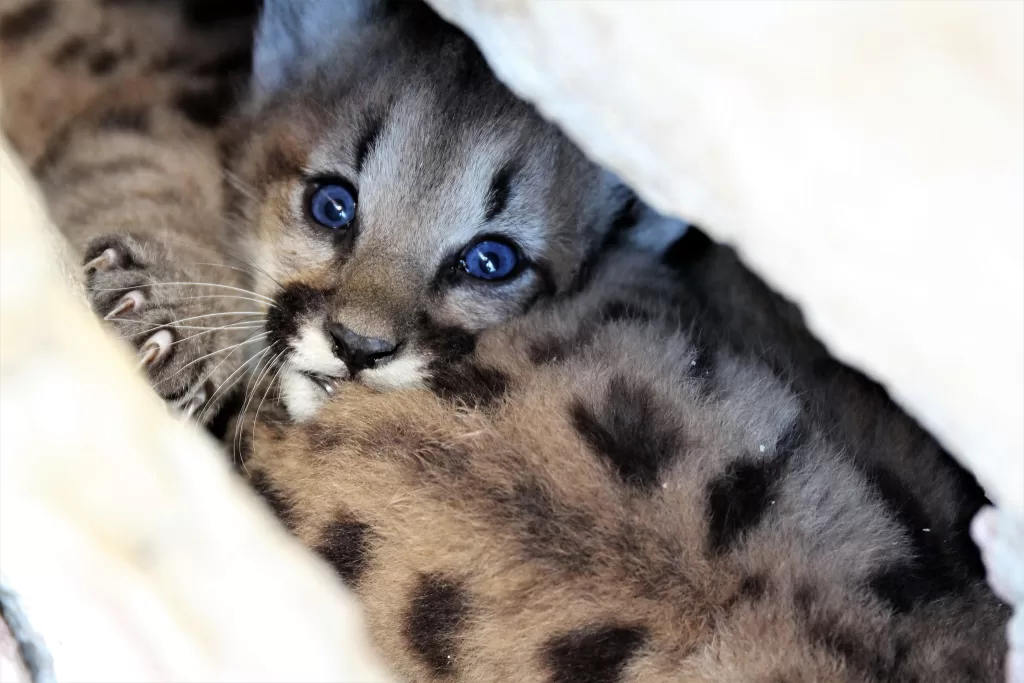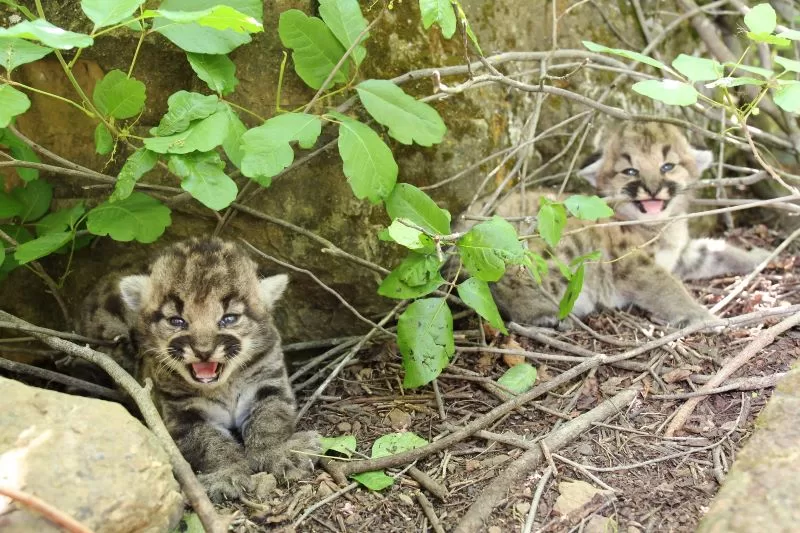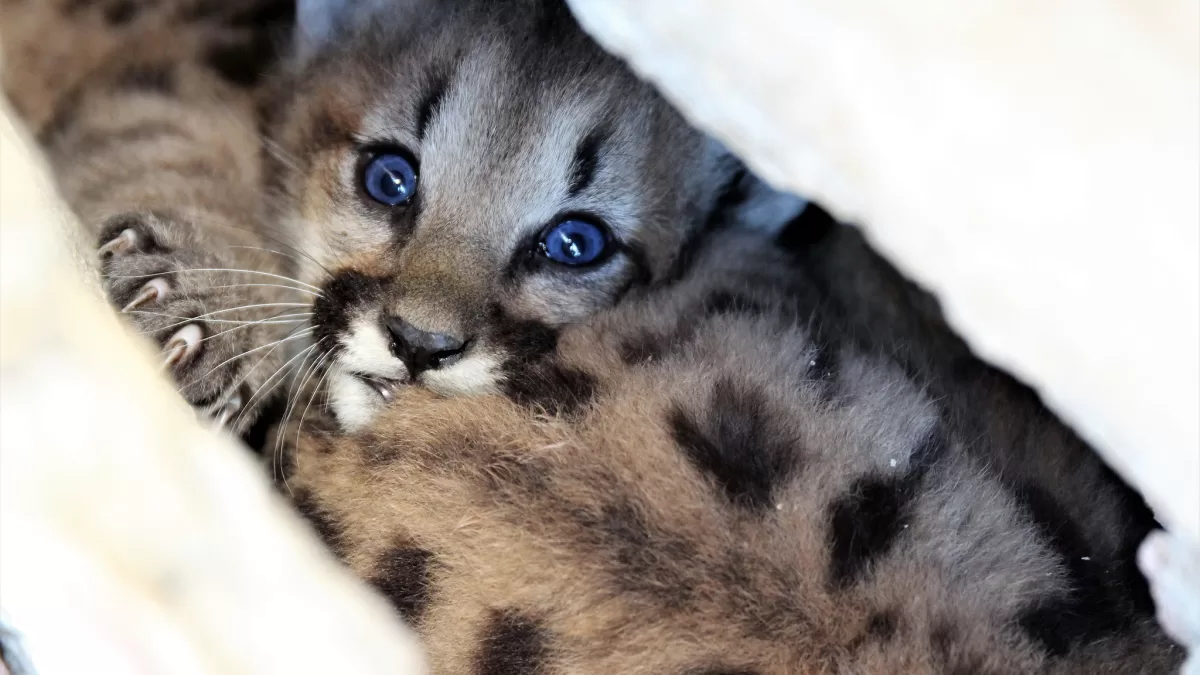
According to National Park Service (NPS) biologists, mountain lion P-77 recently gave birth to three female kittens in the Simi Hills, a small area of habitat between the larger Santa Monica and Santa Susana Mountain ranges. The three kittens are now known as P-113, P-114, and P-115.
Biologists located the kittens in a dense patch of poison oak nestled among large boulders on May 18. All three kittens appeared healthy and were determined to be 24 days old based on when P-77 first arrived at the site.
P-77 is estimated to be around 5-6 years old. She was first captured in the Simi Hills in November 2019, and biologists say she has established her adult home range in this smaller habitat patch between the 101 and 118 freeways. Based on remote camera images after P-77 was first captured, biologists suspect that she had a previous litter. The father of this new litter is presently unknown. NPS biologists are not currently following an adult male in the area between the 101 and 118 freeways, so they suspect the father of this litter likely came from the Santa Susana Mountains and then went back. Photos courtesy National Parks Service






